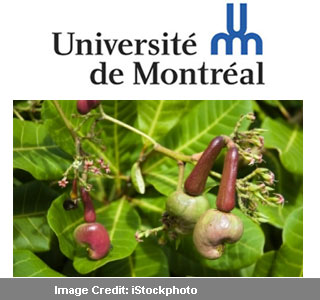
During the investigation, researchers analyzed the benefits of cashew tree products on diabetes, namely cashew extracts enhancing the body’s response to its own insulin. It is known that when the body fails to respond well to insulin and/or does not produce enough of the hormone, then a person may display high blood sugar levels and develop diabetes. Statistics suggest almost 220 million people across the globe suffer from the disease which may further lead to heart or kidney disease.
“Of all the extracts tested, only cashew seed extract significantly stimulated blood sugar absorption by muscle cells. Extracts of other plant parts had no such effect, indicating that cashew seed extract likely contains active compounds, which can have potential anti-diabetic properties,†suggests Pierre S. Haddad, senior author, director of the Canadian Institutes of Health Research Team in Aboriginal Anti-Diabetic Medicines at the Université de Montréal and a pharmacology professor at the Université de Montréal’s Faculty of Medicine.
The researchers aimed to determine the effects of leaves, bark, seeds and apples from cashew trees, native to northeastern Brazil and other countries of the southern hemisphere, on cells that respond to insulin. The experts revealed that from many years, cashew tree products are believed to be effective anti-inflammatory agents, counter high blood sugar and prevent insulin resistance among diabetics. The research ascertains the traditional use of cashew tree products in diabetes and positively points to some of its natural components that can serve to create unique oral therapies.
The research was published in the journal Molecular Nutrition & Food Research.
